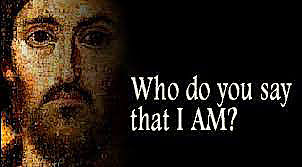
This week is about identity, power and authority of leaders, people and within the growing church. Middle Eastern people were always concerned about how other people regarded them. So identity was important.
Matthew begins his Gospel with a complex, genealogy. That’s another way to get to your identity Genealogies are not just simple accounts of past ancestors. They are ways that we construct identity, ways in which we relate to our past. Jesus knew he was through Matthew’s genealogy. His identity is inextricably linked by Matthew’s genealogy with Abraham and David, with exile and deliverance, with kings and extraordinarily faithful women.
Back to this Sunday’s passage. In the Gospel, up till now Jesus has been teaching the crowds the mystery of the Kingdom in the face of growing hostility from the scribes and Pharisees. Jesus now withdraws with the disciples to begin forming them into his ‘church’.
To have a church he would have to have a congregation. The questions of identity are not just a matter of definition but of formation, not just doctrine but discipleship. In regards to discipleship and church, he needs to know what he has to work with through their understanding of him. He asks who do they think he is in regard to identity. What authority does he have in their minds?
The identity issues needs to be confronted and confirmed. Next week Jesus goes to the predictions of suffering, death, and resurrection.
The reading takes place in in Caesarea Philippi a Roman area. Caesarea Philippi was the site of a Temple built in honor of Caesar Augustus by Herod. On one corner was a shrine to Caesar Augustus. Not far from there you could view statues dedicated to the Roman heroes of old.
The setting is important.. By engaging the disciples he offers a challenge to Roman society.
First, Jesus asks a question, posed all in the 3rd person. “Who do people say that the Son of Man is?” And the answers point to radical prophets who prepare the way for the promised Messiah.
Jesus asks the disciples the same question (v. 15), but this time to the disciples. “Who do you think I am “
It’s another way of saying, “Why are you following me? Why have you left everything you have known?
Peter answers, and in this immediate response we can begin to see the role that Peter plays, for it is not his abruptness that is witnessed here, but rather his primacy. He is the first to understand, know, and confess Jesus as Messiah.
Now, Jesus promptly interprets his answer not as evidence of Peter’s great intelligence, insight or faith, but rather as a gift of grace.
As John Calvin wrote in his commentary, Peter’s “confession is short but it embraces all that is contained in our salvation.” It is all about faithful service.
There are two key symbols present here. “The rock” is the symbolic anchor for the church and is could be Christ or Peter’s insight of Christ. Christ gives Peter “the keys”, the ability to unlock the mysteries of the Kingdom; they may also be a symbol of authority over the Church. Originally, when one came to seek the king’s help or counsel, the servant’s job was to open the door to the king’s house and assist him in reaching the king. Christ’s servants, the ministry, have a similar responsibility to assist those God is calling in coming to their King, Jesus Christ
This is the first time that one of Jesus’ followers calls him “The Messiah,” and the first time he acknowledges it. This passage also adds the connection to the Church”
The turning point of the story is rather that Jesus would build his church on the cracked foundation of a flawed disciple. Jesus gives authority to a group of misfits who more than not don’t get it right
The story doesn’t simply end triumphantly, however, but with a charge for the church to live according to this new kingdom. The church is not to simply stand in victory but is given the power “to bind and loose,” perhaps unleashing the power of forgiveness and grace in the world or heralding the prophetic role of the church in fighting oppression.” “To bind and loose” is a phrase that means to forbid or permit something by an indisputable authority. I
In this passage, Petter has also assumed a new identity. Peter becomes the representative of all the disciples.
